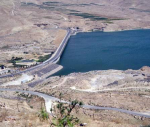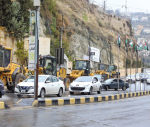You are here
The UNGA meetings: What’s on the agenda?
Sep 14,2021 - Last updated at Sep 14,2021
The United Nations General Assembly (UNGA) is expected to hold its 76th annual meeting between September 21 and 27 but unlike last year, when all the meetings were held virtually, at least 80 leaders are expected to attend in person with their delegations in spite of a US request that the meetings be mostly virtual. The COVID-19 pandemic will almost certainly dominate the leaders’ discussions in New York City.
Very few world citizens follow the UNGA meetings, which are dominated by lengthy and carefully worded speeches by leaders, some of whom speak to an almost empty chamber. The in-person meetings offer opportunities for one-on-one summits and behind-the-scenes deliberations. The public perception is that the UNGA is mostly a sterile and anachronistic club of nations underlying political hubris by authoritarian leaders, Kaddafi and Mogabe come to mind, while giving the false pretence that all nations are created equal.
The real power lies in the Security Council and its five permanent members. Even then, the UN body often shows signs of political deadlock when one or more of the permanent members exercises the right to veto.
But having said that, the UN’s other affiliated bodies such as WHO, WFP, UNESCO, UNICEF and UNHCR have done so much in a troubled world since the end of the Second World War. Despite the harsh criticisms directed at the World Health Organisation (WHO) following the outbreak of the pandemic, the body has played an instrumental role in supporting efforts to produce effective vaccines as well as organising plans for an equitable distribution of vaccines through the COVAX initiative.
Furthermore, one cannot deny WHO’s role in global vaccination campaigns against polio, smallpox and others as well as prevention of the spread of dangerous viruses such as Ebola.
Likewise the role of the United Nations High Commissioner for Refugees (UNHCR) and World Food Programme (WFP) in helping millions of refugees and displaced persons affected by conflicts around the world must be recognised. It is the UNGA that approves the budget of these essential organisations.
So what to expect from this year’s UNGA meetings? The US withdrawal from Afghanistan and the fall of Kabul to the Taliban will likely dominate the discussions. The US will reiterate its commitment to continue the fight against global terrorism. Its leadership remains crucial to containing militant extremists. That message will be important following the Afghanistan debacle. But Afghanistan will be a polarising issue as well. The question of who will speak for that country at the UN will press itself as some nations, which could include China as well as Iran, Qatar and Pakistan, are on their way to recognise the new regime. Protecting the rights of women, children and minorities there will also be present as human rights groups will push for a discussion of the issue.
On the other hand, Afghanistan also presents a humanitarian challenge where more than 50 per cent of the population is dependent on international aid. Facilitating the supply of aid and protecting international agencies working on the ground will require a strong commitment from the new regime.
Another issue that will certainly be discussed is the pandemic and where the world is heading with the spread of new variants and doubts about the efficacy of vaccines. President Joe Biden is said to be ready to announce new global vaccine aid before the UNGA meetings. Biden is weighing a multilateral meeting ahead of the UN leaders’ sessions aimed at vaccine supply, and has said he will announce new vaccine measures this month.
Aside from the health issue there are the economic and social side-effects of the pandemic. Many countries have seen their economies slump as a result of months of lockdown. There will be calls by poorer countries for a global initiative to provide aid and loans to countries that are struggling economically.
The Iran nuclear deal will also feature in these meetings. Like his predecessor Benyamin Netanyahu, Israeli Prime Minister Naftali Bennett will make a case, whether he attends in person or virtually, against Tehran’s nuclear programme. Last week, he called the international community to act immediately against Iran, after the United Nations nuclear watchdog reported that the Islamic Republic has dramatically increased its production of highly enriched uranium in recent months and is not allowing full inspection of its activities. “The naive expectation that Iran will be prepared to change its path via negotiations has been proven to be baseless,” Bennett said.
The US has hinted that time is running out and that it is getting closer to giving up on the nuclear deal. It would be interesting to see if Iran's President Ebrahim Raisi will fly to New York, he is under international sanctions, or if he will speak to the assembly via TV.
And lastly the Palestinian Question will feature yet again in the meetings but Bennett has made it clear that there will be no political process with the Palestinians. All Israel is willing to offer at this stage, backed by the US, will be economic incentives to keep the Palestinian Authority from collapsing. The Palestine issue, the oldest on the UN’s agenda, is yet another proof of the failure of the international body to implement its own resolutions leaving the conflict to fester.
Osama Al Sharif is a journalist and political commentator based in Amman












